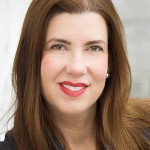Health Rosetta Principles
A New Medical Science
A New Paradigm
A new social, psychological, biological, and information-driven medical science is emerging that will better understand a person’s environmental context and it’s relationship with disease. It’s precision medicine, but more, using sensors and networks to better predict and prevent as well as treat the root causes of disease. No vision of the future of medicine can be complete or even competent if it doesn’t recognize these new sources of information and the power of patient engagement.

Essay to be provided by Eric Topol, MD, Professor of Genomics The Scripps Research Institute; Cardiologist, Scripps Health; Chief Academic Officer, Scripps Health; Vice-Chairman West Wireless Health Institute.
Open source and open knowledge
Open source, open APIs, open data and open knowledge (such as wikis) will become central to defining a common architecture to support this new science. These are modern versions of peer-review.
Nominate who should expand on this principle by clicking the Nominate Contributor button.
Non-clinical determinants of outcomes
To improve care and reduce costs with this new science, we must focus on what drives 80% of of outcomes, the non-clinical factors which include social, economic and psychological determinants of health.
Nominate who should expand on this principle by clicking the Nominate Contributor button.
Cross-disciplinary collaboration
Cross-disciplinary collaboration and sharing of research data will be a requirement to accelerate new discoveries.
Nominate who should expand on this principle by clicking the Nominate Contributor button.
Evidence-Based understanding of what works
This new science will arrive at an evidence-based understanding of what works through a great wealth of shared longitudinal health data captured through mobile devices, sensors and health records. It must be mindful of the concept of transforming Data to Information, Knowledge and Wisdom.
"If we’re going to talk about evidence-based understanding in the context of a reinvented and redefined health system, we need to first reassess what we mean by evidence and redefine how we understand it."

Essay from Ben Heywood, Co-Founder, President of PatientsLikeMe, a patient network that improves lives and a real-time research platform that advances medicine. He is responsible for setting the company vision to improve healthcare and accelerate research, while directing its business growth strategy.
Understanding the personome
The new medical science will focus on understanding the personome. “The influence of the unique circumstances of the person—the personome—is just as powerful as the impact of that individual’s genome, proteome, pharmacogenome, metabolome, and epigenome.” Roy Ziegelstein, MD, JAMA, April, 2015.
Nominate who should expand on this principle by clicking the Nominate Contributor button.
Openness Drives Effective Action
Individual choice
Individuals have the right to make choices and control their health destiny with the best information available.
Nominate who should expand on this principle by clicking the Nominate Contributor button.
Open access to information
Open access to information that will enable individuals to make the best decisions and become well-informed individuals, particularly when curated and contextualized by clinicians.

Essay from Hannah Chimowitz, Tom Delbanco and Jan Walker, OpenNotes Team.
Openness and privacy are not in conflict
Openness and privacy are not in conflict with the right kinds of identity, consent and data control mechanisms in place.

Essay from Adrian Gropper, MD, CTO Patient Privacy Rights.
A required culture change
With this openness will come a required culture change. We must release information in order to ensure high quality information and code. In software, Linus’ Law states, “given enough eyeballs, all bugs are shallow”. Keeping information sealed until it is perfect, we will mean we miss opportunities to improve the data and fix the system.
Nominate who should expand on this principle by clicking the Nominate Contributor button.
Economics and Transparency
Information asymmetries
Information asymmetries lead to inefficient systems and sub-optimal outcomes. Access to life-saving, taxpayer-supported research must be open.
Nominate who should expand on this principle by clicking the Nominate Contributor button.
Social determinants of health
Health and wealth are tightly linked. Eventually, poor financial health will negatively impact overall health.

Health Rosetta Principles essay to be provided by Tamara St. Claire, PhD, MBA, Chief Innovation Officer, Xerox Commercial Healthcare and Deryk Van Brunt, President at Healthy Communities Institute.
Cost as comorbidity
The cost of care can be a comorbidity. By ignoring costs in clinical decisions, conditions can worsen as financial stress may drive individuals to choose not to follow a plan of care because it is too expensive.
Nominate who should expand on this principle by clicking the Nominate Contributor button.
Individual's right to know the cost of care
Individuals have the right to know how much care will cost before receiving care, both out of pocket and covered. When there is unpredictable complexity (not caused by medical error which shouldn’t be charged for at all), individuals should be informed of the most likely ranges.
Health Rosetta Principles essay fromJim Millaway, President and Innovation Lead at The Zero Card, benefits consultant, and Chairman of the Board of WellOk (the Northeast Oklahoma Business Group on Health and a member organization of the National Business Coalition on Health).
Personal responsibility
Individuals have personal responsibility to manage their lives along with their care.
Nominate who should expand on this principle by clicking the Nominate Contributor button.
Relationships and Peer to Peer Networks Will Become Central
Communication as “medical instrument”
The most important “medical instrument” is communication. Communications drive actions, build relationships and create trust.
Nominate who should expand on this principle by clicking the Nominate Contributor button.
Data liquidity for improving health
Exchange of personal health data will become enabled via decentralized Peer to Peer (P2P) networks and “HIEs of 1”. These P2P exchanges will improve health literacy, healthy action and a functioning health economy.

Essay to be provided by Lygeia Ricciardi, Consumer Engagement & Digital Health Expert; President, Clear Voice Consulting.
P2P networked conversations
P2P networked conversations will empower new ways of organizing better health, allowing individuals to “organize without organizations” (h/t Clay Shirky) for better care.

Essay to be provided by Susannah Fox, Chief Technology Officer of the U.S. Department of Health and Human Services.
Individuals and health research
Verifiable but de-identified, opted-in health data will become part of a unified view of healthcare for research and risk assessment. Individuals will have the choice to contribute.

Essay to be provided by John Wilbanks, Chief Commons Officer at Sage Bionetworks and a Senior Fellow at the Ewing Marion Kauffman Foundation and at FasterCures. He also runs the Consent to Research Project.
New Intelligence
“Cognification”
To “Cognify” (h/t Kevin Kelly) is to instill intelligence into something. Medical knowledge will increasingly be “cognified” into the IoT and much of the world around us is made “smart” and data-aware. This is good, and will free people to care for themselves where they want to receive care.
Read Full Essay

Essay from Sue Siegel, GE Ventures, Licensing & Healthymagination, GE.
Feedback
All feedback has utility. Whether the news is good or bad, opinions become known and become a source for improvement and competitiveness.

Essay from Mitch Rothschild, Executive Chairman and Founder, Vitals.
Community-driven Health
Stewarding social and economic factors
True health system leadership comes from not just being stewards of hospitals and clinics but stewarding social and economic factors and the physical environment of a community, which account for half of outcomes.
Nominate who should expand on this principle by clicking the Nominate Contributor button.
Partnering for community health
Assessing community health needs and adopting strategies to address those needs will provide hospitals with a valuable opportunity to partner with community partners to identify strategies for improving health, quality of life, and the community’s vitality.

Essay from Esther Dyson, Founder, HICCup/Way to Wellville.
Building health literacy and community
Healthcare organizations that aggressively promote health literacy will build community capacity in addressing health issues. This may mean enabling and curating others in the community to reach all facets of the community.
Nominate who should expand on this principle by clicking the Nominate Contributor button.
Health and financial literacy
Start by teaching medicine and psychological self-awareness and resilience to kids. Starting in schools, health education needs to include the “medicine” we consume every day. Insurance/benefits literacy should be included in schools’ financial literacy courses.

Essay from Dr. Tom Ferguson, Senior Research Fellow for Online Health Pew Internet & American Life Project
School lunches
School lunches are an access point of great power: they reinforce or remove the unhealthy products we consume.

Essay from Kate Adamick, co-founder of Cook for America® and author of Lunch Money: Serving Healthy School Food in a Sick Economy.
“Let food be thy medicine”
Hippocrates said, “Let food be thy medicine and medicine be thy food.” Individuals are “poisoning” themselves by the food they eat, largely without knowing it.
Nominate who should expand on this principle by clicking the Nominate Contributor button.
“Walking is man’s best medicine.”
Hippocrates also said, “Walking is man’s best medicine.” Communities and workplaces that make it easy to walk and be active can gain an advantage over the status quo.
Nominate who should expand on this principle by clicking the Nominate Contributor button.
Healthcare waste – A bandit stealing from our future
Healthcare waste is like a bandit stealing from our future. Healthcare is breaking U.S. schools. Money once directed to education is getting gobbled up by healthcare’s hyperinflation. This piles onto the problem that kids don’t learn enough about health, nutrition, finance or any of the things that lead to healthy, long lives.

Essay provided by Bill Gates, Co-Chair of the Bill & Melinda Gates Foundation.
New Choices for Individuals and Care Teams
Health isn’t limited to the clinic
Health is not the limited time individuals spend in clinics. What happens in the other 99+% of their life has the greater impact on an individual’s overall well-being.
Nominate who should expand on this principle by clicking the Nominate Contributor button.
Better choices through motivation
We will learn how to rapidly enable better choices through motivation, tools, and access to better choices and lifestyles. Each individual will respond differently, requiring a whole new level of personalization.
Nominate who should expand on this principle by clicking the Nominate Contributor button.
Understanding motivations and habit change
People are complicated with both innate drives and ingrained habits that work against long-term health. The psychology of understanding these motivations and habit change is critical to success in achieving better health.

95 Theses essay to be provided by Swatee Surve, Litesprite Founder & CEO. A leader who has developed and launched disruptive technology-based healthcare businesses for Microsoft, Nike, T-Mobile, Premera Blue Cross and Eastman Kodak.
Wisdom of the individual
Still, people will make incredibly smart decisions when they understand the true risks and choices.

Essay from Garrison Bliss, MD, Physician and Owner at BlissMD, Founder of the Direct Primary Care movement.
Mental health
Mental health is an equal component of a person’s overall health. Mental health directly impacts our physical health and our ability to recover from disease or medical interventions. Therefore, mental health needs to be deliberately and systematically integrated into the general health care system.

Essay from John M. Grohol, Psy.D. Founder & CEO, Psych Central.com.
Nutritional and environmental causes of disease
Open information and research are needed to understand the nutritional and environmental causes of disease.
Nominate who should expand on this principle by clicking the Nominate Contributor button.
Unhealthy food
Foods that are void of nutrition are the tobacco of this generation.
Nominate who should expand on this principle by clicking the Nominate Contributor button.
Optimizing health
We have defined sick care very well; what happens when things go wrong and how to correct them. We have very little understanding of how to keep things going right, how to get people back on track when they go off the rails, nor how to continually optimize health. Innovations in research are changing this; new entrants will figure out how to enable it.

Essay to be provided by Daniel Kraft, MD, Chair for Medicine at Singularity Univ & Founder & Chair, Exponential Medicine.
Preventing the need for care
Systems will be designed so individuals can stay healthy and take as few drugs, have as few procedures, and avoid the system as much as possible by engaging in self-care.

Essay from Rob Lamberts, MD, Owner Dr. Rob Lamberts, LLC
Embracing the “flat world” of care
The emergence of a flat world opens up new avenues to innovation about what has worked in other cultures. The US has the opportunity to learn to be open to ways of healthcare that originate outside our borders, particularly those that are more appropriate to the underserved.
Nominate who should expand on this principle by clicking the Nominate Contributor button.
Individuals and Engagement
Inclusivity with individuals and caregivers
Individuals and their caregivers are the greatest untapped sources of information, knowledge and motivation. Optimizing care means partnering with individuals and caregivers to empower them.

Essay from Danny Sands, MD, MPH, Co-Chairman, Co-Founder, and Past-President Society for Participatory Medicine, Primary Care Physician Beth Israel Deaconess Medical Center, Assistant Clinical Professor of Medicine Harvard Medical School.
Experience had a “Triple Aim” too
The effectiveness of engagement is tightly aligned with how convenient it is, how easily it integrates with where we live, work and play, how culturally relevant it is and its cost effectiveness.
Nominate who should expand on this principle by clicking the Nominate Contributor button.
Leveling the empowerment playing field
Engagement and empowerment are different. Individuals are often most engaged, but least empowered. A partnership between individuals and clinicians is when health is optimized.

Essay to be provided by Jan Oldenburg, Consumer and patient empowerment and engagement specialist, EY; Author/Editor for HIMSS 2014 Book of the Year, “Engage! Transforming Healthcare Through Digital Patient Engagement”
“Patient engagement” is backwards
“Patient engagement” is valuable, but backwards. Individuals need the health system to be engaged with them regularly, and not just during visits.
Nominate who should expand on this principle by clicking the Nominate Contributor button.
“Individual-centered” engagement
An engaged individual is very different from “patient engagement” (h/t Gilles Frydman). One is individual-centered, one is health system-centered. Achieving full health is the goal, not engaging with the health system.

Essay to be provided by Gilles Frydman, Co-founder & Chief Strategy Officer at Smart Patients, President & Founder ACOR (Association of Cancer Online Resources).
Engagement for avoiding the health system
An individual can be engaged with their own health without entering the health system at all (h/t Hugo Campos). The goal of an individual is often to become/stay free of the healthcare system. Engaging means empowering them to do so.

Essay from Hugo Campos, Stanford Medicine X ePatient Advisor, White House Champion of Change for Precision Medicine.
New Economics
Choose wisely
Choose wisely. Often times less is more.
Nominate who should expand on this principle by clicking the Nominate Contributor button.
Prevention
Oftentimes, early is better than late.
Nominate who should expand on this principle by clicking the Nominate Contributor button.
Overtreatment
Overtreatment is one of healthcare’s greatest challenges. In many cases no treatment is much better than treatment.

Essay from Shannon Brownlee, MSc, Senior Vice President, Lown Institute.
Sustainability
A system that profits more from people with “problems” than those without, default set at “treat more”, is destined to collapse due to its inherent unsustainability.

Essay from Rob Lamberts, MD, Owner Dr. Rob Lamberts, LLC.
Evidence-based care delivery
Systems will become better aligned to better prevent overtreatment and undertreatment, driven by individual’s access to information, informed by statistics.

Essay to be provided by Vikas Saini, MD, President of the Lown Institute.
Empowering a patient to make rational economic choices
Individuals enter the healthcare system to get measurements, to be diagnosed, to seek answers, treatment and learn. Individuals will seek alternatives outside of expensive, inconvenient care centers. This will drive positive overall change in the health system.

Essay from Stanley Schwartz, MD, President and CEO WellOK, The Northeastern Oklahoma Business Coalition on Health.
New Education
Scaling medical education for the future
Medical education will be made continuous, engaging, and scalable in the age of increasing clinical demands and limited work hours.

Essay from Bryan Vartabedian, MD, Director of Community Medicine | Gastroenterology, Hepatology & Nutrition Texas Children’s Hospital; Assistant Professor of Pediatrics Baylor College of Medicine.
New approaches to learning
Medical educators will make thoughtful use of technology and learning design. Those that excel will learn how MOOCs, community engagement, social media, simulation and virtual reality might change the face of medical education.
Nominate who should expand on this principle by clicking the Nominate Contributor button.
Harnessing the data deluge
The flood of new medical information is impossible to keep up on for any one person. Physicians and other care providers will be enabled by better systems for filtering what’s valuable for an individual’s care.

Essay from Daniel Schwartz, MD, 2018 Congress Co-chair International Society of Peritoneal Dialysis; Medical Director QxMD; Nephrologist & Medical Director, Renal Program Fraser Health Authority; Clinical Assistant Professor of Medicine University of British Columbia; Editor, Nephrology.
Rapid evolution
Effective medical education must and will evolve rapidly to focus on care delivery and the use of digital tools in care delivery.
Nominate who should expand on this principle by clicking the Nominate Contributor button.
Physician as community manager
Medical education will recognize that because only 10–20% of health outcomes are driven by clinical care, physicians must also be stewards of community transformation. Physicians are in the best position to be good partners within a multi-disciplinary alliance enabling community transformation.

Essay from S. Claiborne “Clay” Johnston, MD, Dean Dell Medical School at The University of Texas at Austin.
New Data Ownership Rights
Individual Rights
An individual’s access to and management of data about him/herself is a fundamental human and property right. Why is it easier to have your medical data hacked than for you to get access to it? (h/t Eric Topol)
Nominate who should expand on this principle by clicking the Nominate Contributor button.
Monopolies
Monopolies on medical knowledge and information are unethical.

Essay from Jonathan Bush, Chief Executive Officer, President and Chairman of the Board of Directors, athenahealth.
Single Patient Record
Now that all information can be connected, all the time, there should be only one record of health data that comes from an individual, controlled by the individual. Problems with HIPAA and “information blocking” are symptoms of a broken, pre-internet, paper-driven era.

Essay from Leonard Kish, MBA/MSIS, MS, Co Founder at UnPatient.org.
Property Rights in a Distributed System
Platforms will be developed to enable the rights and transactions around health data property. These platforms will be decentralized, yet enabled to focus on the individual in an instant. Be prepared.
Nominate who should expand on this principle by clicking the Nominate Contributor button.
Patients Right to Data About Them
Individuals have a right to any data that comes from a measurement of an internal state of their body, including medical devices.
Nominate who should expand on this principle by clicking the Nominate Contributor button.
Immediacy of Access to Health Data
Individuals have literally died, waiting for their lab data. An individual’s lab and other data should be made accessible to individuals as soon as it is available.
Nominate who should expand on this principle by clicking the Nominate Contributor button.
Data Doesn’t Cause Medical Harm
Medical regulations exist to protect individuals from medical harm. Data, ideas and information in the hands of individuals causes no medical harm.
Nominate who should expand on this principle by clicking the Nominate Contributor button.
Safe Access to Data Without a Doctor’s Permission
Individual may have access to metrics and analysis about their own body without a doctor’s permission as long as accessing that data poses no significant medical risk.
Nominate who should expand on this principle by clicking the Nominate Contributor button.
Right to Privacy
Individuals have a right to health data privacy. Rights to sharing must be established with the individual it originates from, or their legal agent, in advance of sharing.

Essay from Adrian Gropper, MD, CTO Patient Privacy Rights.
Health Information Anti-Discrimination
Health data collected about an individual cannot be used to determine a person’s access to capital (credit ratings), employment, education, housing or healthcare services. This will be legislated and empowered by new technologies.
Nominate who should expand on this principle by clicking the Nominate Contributor button.
New Roles and Relationships for Providers
Misaligned Incentives Impair Providers
Misaligned reimbursement schemes have impaired providers from doing the primary job of healing and have often robbed them of their humanity. Paying for value will help them get the job of healing back.

Essay from Rushika Fernandopulle, MD, MPP CEO, Iora Health Instructor in Medicine, Harvard Medical School.
Enlightened Providers Partner with Patients Who Guide Their Care
The enlightened clinicians who embrace these guiding principles, combined with empowered individuals guiding their own care will become a powerful competitive advantage.
Nominate who should expand on this principle by clicking the Nominate Contributor button.
Maintain Trust in Health Professionals
The most trusted professions are nurses, doctors and pharmacists. With the trust individuals have in these professions, they activate us to do things we wouldn’t normally do. Respect this trust.

Essay to be provided by Susan Hull, MSN, Chief Nursing Informatics Officer Cincinatti Children’s Hospital Medical Center.
Whole-Person View of Health
World class teams require a holistic view of a person’s complete health, which includes not just their physical health but also their mental health.

Essay to be provided by Michael Dermer, Chief Incentive Officer, Welltok.
Embracing the Science of Behavior Change
Relationships are fuel for motivation and behavior change (both positive and negative). Motivations, triggers and ease of action are keys to enabling behavior change.

Essay from Swatee Surve, Litesprite Founder & CEO
The Importance of Relationships
Relationships are fuel for motivation and behavior change (both positive and negative). Motivations, triggers and ease of action are keys to enabling behavior change.
Nominate who should expand on this principle by clicking the Nominate Contributor button.
Healthcare Extends Beyond the Walls of the Clinic
The best care is and will be collaborative beyond the walls of any one institution. Just as “the smartest people work for someone else”, the smartest providers practice outside of this clinic and this hospital. The smartest provider may, in fact, be a collective, or the crowd. New ways to open communications will drive better care.
Nominate who should expand on this principle by clicking the Nominate Contributor button.
Flipping the Clinic
Many times, the best place for interaction between the clinician and an individual isn’t at the clinic. We can flip the clinic. Much of what has been done at a clinic visit can be done more effectively in the comfort of an individual’s home via email and other digital tools or in social settings like churches or community organizations.

Essay from Brad Younggren, MD, Chief Medical Officer 98point6, medical director EvergreenHealth, and emergency physician.
Embracing Data to Deliver Better Care
The most relevant providers will learn and will be conversant in data analytics and tools. They will be experts in care delivery, not just diagnostics and traditional medical science.
Nominate who should expand on this principle by clicking the Nominate Contributor button.
A New Competition in Life Science & MedTech/Device
Embracing the New Science Within the Leadership
Tomorrow’s leaders will redesign development and trials to capitalize on the aforementioned New Science dynamics and mobile technologies.
Nominate who should expand on this principle by clicking the Nominate Contributor button.
Embracing Partnerships Beyond the Traditional Ones
New and non-obvious partnerships will need to be forged to ensure leadership in the future. Alliances with health tech and consumer health/Internet companies will be as important as alliances with academic medical centers have been in the past.
Nominate who should expand on this principle by clicking the Nominate Contributor button.
Broadening the Value of Post-Trial Relationships
Post-trial relationships with individuals will allow co-creation and insights not possible before. That is a largely untapped opportunity. ResearchKit is just the beginning.
Nominate who should expand on this principle by clicking the Nominate Contributor button.
Openness to Engagement
The individual’s relationship to a device or therapeutic may be as profound as their relationship to their doctor, or more so. Be available and open to engagement to make improvements.
Nominate who should expand on this principle by clicking the Nominate Contributor button.
New Health Plans, New Health Benefits
Fee for Service Is Dying
Fee for service is dying. Transition now in every way you can.
Nominate who should expand on this principle by clicking the Nominate Contributor button.
The Dirty Secret of Health Plans
The dirty secret of health plans is that higher care costs have, counterintuitively, led to greater profits for the plans. This is changing. Winning health plans will capitalize on the opportunity to fundamentally rethink plan design to be optimized for the fee-for-value era.

Essay to be provided by Stanley Schwartz, MD, President and CEO WellOK, The Northeastern Oklahoma Business Coalition on Health.
Catalyzing Patient Engagement
Catalyzing patient engagement will lead to better care and a more competitive offering.
Nominate who should expand on this principle by clicking the Nominate Contributor button.
The Next Dirty Secret
The next dirty secret of health plans is that they are money managers. The longer they hold on to money, the more they make. Employers and unions are driving the next wave of healthcare innovation, protecting their employees/members.
Nominate who should expand on this principle by clicking the Nominate Contributor button.
Investing in Members' Financial Security
Rather than reflexively denying claims and building up a mountain of ill will, insurance companies should invest resources in protecting their member’s financial security.
Nominate who should expand on this principle by clicking the Nominate Contributor button.
The “Negaclaim”
Customers will, in effect, “self-deny” their own claims. A new metric for success is the “Negaclaim” — an unnecessary claim avoided. This isn’t about denying care. Just as energy consumers aren’t interested in kilowatt hours, individuals aren’t interested in health claims — they want health restored and diseases prevented.

Essay from Garrison Bliss Physician and Owner at BlissMD, Founder of the Direct Primary Care movement.
True Informed Consent
When individuals are fully educated on the trade-offs associated with interventions, they generally choose the less invasive approach.
Nominate who should expand on this principle by clicking the Nominate Contributor button.
“Essential Access,” the Corollary to “Essential Benefits”
The ACA defined “essential benefits” but there will be a corollary about rights to “essential access” as part of coverage. Any modern health plan offering will include virtual visits, transparent price info, updated provider directory, same day e-mail response, next day test results, etc. — all imminently doable with today’s modern technology.
Nominate who should expand on this principle by clicking the Nominate Contributor button.
Rethinking Benefits Design and Procurement
As the second or third biggest expense after payroll, CFOs & CEOs are failing in their fiduciary responsibility by being overly passive in how they procure health benefits. A rethought healthcare purchasing plan drives direct, financial returns but most importantly enables your valued employees to do what they desire — realize their full potential. Elements are defined at healthrosetta.org.
Nominate who should expand on this principle by clicking the Nominate Contributor button.
Aligning Laboratory Testing and Genomics
Genomics and proteomics information and testing will be key components of personalized medications, tailored to provide the best dose/response relationship in each patient. Because of their importance, these tests and genomic information must be covered by health plans and insurance.
Nominate who should expand on this principle by clicking the Nominate Contributor button.



